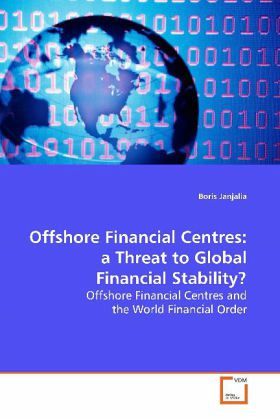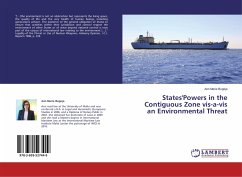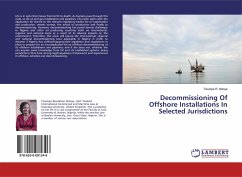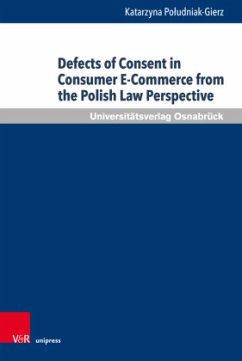
Offshore Financial Centres: a Threat to Global Financial Stability?
Offshore Financial Centres and the World Financial Order
Versandkostenfrei!
Versandfertig in 6-10 Tagen
32,99 €
inkl. MwSt.

PAYBACK Punkte
16 °P sammeln!
Offshore Financial Centres (OFCs) play an important role in the modern world of finance, due to the variety of services and convenient conditions they offer to business circles. At the same time attractive features of OFCs are often abused for tax avoidance, money laundering or terrorism financing. Other problematic areas - poor regulation and supervision of financial sector and impediments in international cooperation with other jurisdictions - are still present in many of OFCs and cause serious anxiety within the international community. The purpose of the work is to assess risks posed by OF...
Offshore Financial Centres (OFCs) play an important
role in the modern world of finance, due to the
variety of services and convenient conditions they
offer to business circles. At the same time
attractive features of OFCs are often abused for tax
avoidance, money laundering or terrorism financing.
Other problematic areas - poor regulation and
supervision of financial sector and impediments in
international cooperation with other jurisdictions -
are still present in many of OFCs and cause serious
anxiety within the international community. The
purpose of the work is to assess risks posed by OFCs
and answer the question whether they represent a
threat to the stability of the world financial
order. For this end, the work examines benefits and
particular areas of concerns associated with OFCs as
well as position of relevant international
organisations and initiatives thereof. The work
shall be useful for lawyers, financiers,
representatives of international organizations and
law enforcement agencies, or anyone else who may be
interested in OFCs.
role in the modern world of finance, due to the
variety of services and convenient conditions they
offer to business circles. At the same time
attractive features of OFCs are often abused for tax
avoidance, money laundering or terrorism financing.
Other problematic areas - poor regulation and
supervision of financial sector and impediments in
international cooperation with other jurisdictions -
are still present in many of OFCs and cause serious
anxiety within the international community. The
purpose of the work is to assess risks posed by OFCs
and answer the question whether they represent a
threat to the stability of the world financial
order. For this end, the work examines benefits and
particular areas of concerns associated with OFCs as
well as position of relevant international
organisations and initiatives thereof. The work
shall be useful for lawyers, financiers,
representatives of international organizations and
law enforcement agencies, or anyone else who may be
interested in OFCs.












